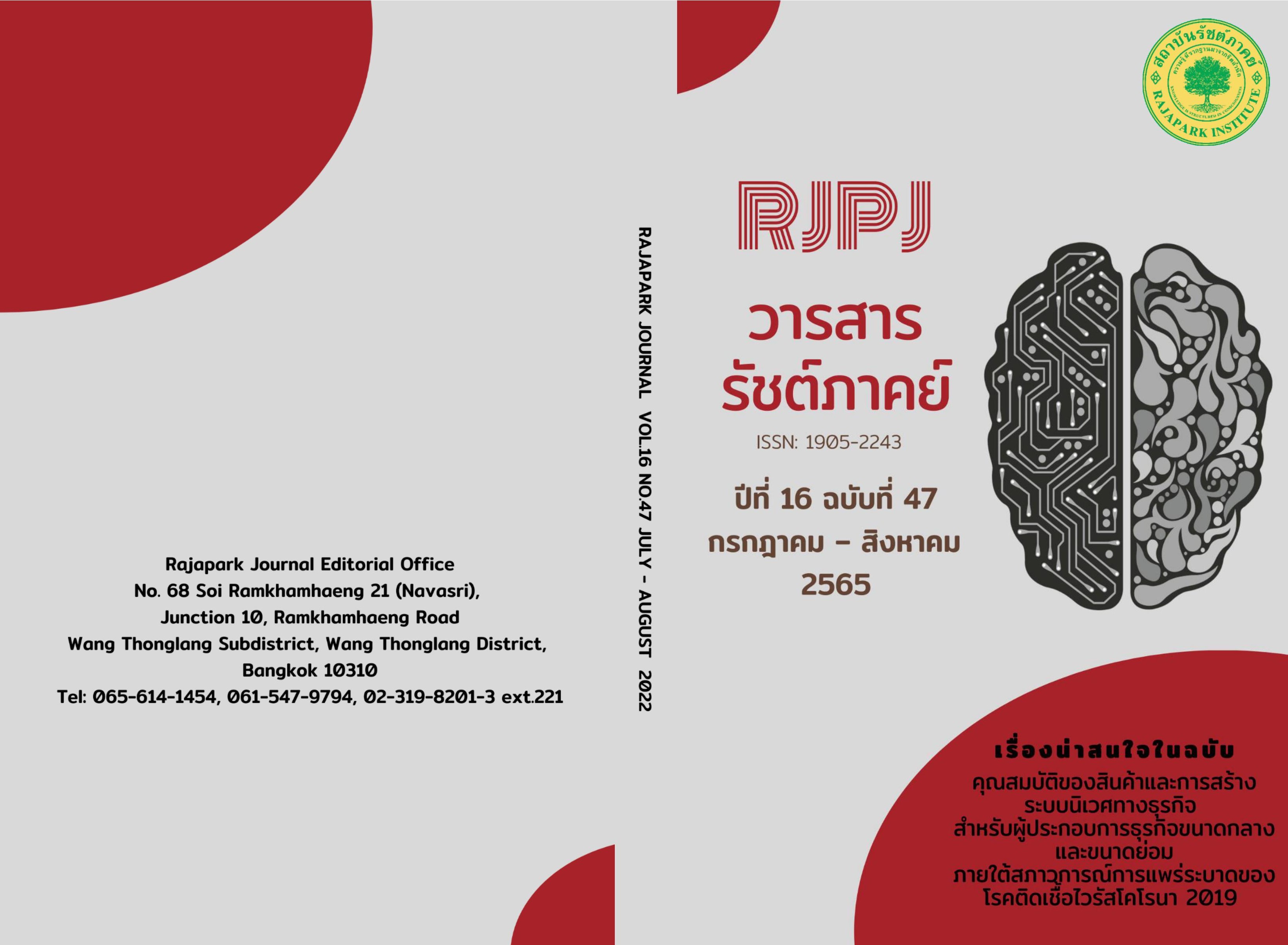สภาพ ความต้องการจำเป็นและแนวทางพัฒนาครูในการจัดการเรียนรู้เชิงรุกของโรงเรียน ในสังกัดสำนักงานเขตพื้นที่การศึกษาประถมศึกษานครพนม เขต 2
Main Article Content
บทคัดย่อ
การวิจัยนี้มีวัตถุประสงค์ (1) เพื่อศึกษาสภาพปัจจุบัน และสภาพที่พึงประสงค์ของการพัฒนาครูในการจัดการเรียนรู้เชิงรุก (2) เพื่อประเมินความต้องการจำเป็นของการพัฒนาครูในการจัดการเรียนรู้เชิงรุก (3) เพื่อพัฒนาแนวทางพัฒนาครูในการจัดการเรียนรู้เชิงรุก เป็นการวิจัยเชิงคุณภาพ กลุ่มตัวอย่างที่ใช้ในการวิจัย ได้แก่ ผู้บริหารสถานศึกษา และครู จำนวน 328 คน เครื่องมือที่ใช้ในการวิจัย คือ (1) แบบสอบถามสภาพปัจจุบันของการจัดการเรียนรู้เชิงรุก (2) แบบสอบถามสภาพที่พึงประสงค์ของการจัดการเรียนรู้เชิงรุก (3) แบบสัมภาษณ์แบบมีโครงสร้าง และ (4) แบบประเมินความเหมาะสมและความเป็นไปได้ของแนวทางพัฒนาการจัดการเรียนรู้เชิงรุก สถิติที่ใช้ ได้แก่ ร้อยละ ค่าเฉลี่ย ส่วนเบี่ยงเบนมาตรฐานและค่าดัชนีความต้องการจำเป็นแบบปรับปรุง (PNIModified) ผลการวิจัย พบว่า (1) สภาพปัจจุบันของการพัฒนาครูในการจัดการเรียนรู้เชิงรุกโดยรวมอยู่ในระดับมาก และสภาพที่พึงประสงค์ของการพัฒนาครูในการจัดการเรียนรู้เชิงรุกโดยรวมอยู่ในระดับมากที่สุด (2) ลำดับความต้องการจำเป็นของพัฒนาครูในการจัดการเรียนรู้เชิงรุก ด้านที่มีค่าเฉลี่ยสูงสุด คือ ด้านการจัดการเรียนรู้แบบร่วมมือ และ (3) แนวทางพัฒนาครูในการจัดการเรียนรู้เชิงรุก ครูควรจัดการเรียนรู้ที่เน้นผู้เรียนเป็นสำคัญโดยผ่านการทำงานที่มีการค้นคว้าด้วยตนเองอย่างเป็นขั้นตอน เน้นทักษะกระบวนการคิดอย่างมีวิจารณญาณ
Article Details

อนุญาตภายใต้เงื่อนไข Creative Commons Attribution-NonCommercial-NoDerivatives 4.0 International License.
ทัศนะและความคิดเห็นที่ปรากฏในวารสาร ถือเป็นความรับผิดชอบของผู้เขียนบทความนั้น และไม่ถือเป็นทัศนะและความรับผิดชอบของกองบรรณาธิการ
เอกสารอ้างอิง
Ekphet, C. (2019). To Become a Professional Executive. Surat Thani Rajabhat University.
Juychum, D., Bowchamchoy, K., & Kanthong, S. (2016). The Enhancement of Learning Achievement of Students on Thinking Skills of Thinking Skills Module (11-024-112) Employing the Active Learning Method, 1st Semester of Academic Year 2015. Princess of Narathiwat University Journal of Humanities and Social Sciences, 3(2), 47-57. https://so05.tci-thaijo.org/index.php/pnuhuso/article/view/61720/50845
Khamanee, T. (2013). Pedagogical Science: Knowledge for Effective Learning Process Management. Chulalongkorn University.
Kilian, M., & Bastas, H. (2015). The Effects of Team-Based Learning on Students’ Attitudes and Students’ Performances in Introductory Sociology Classes. Journal of the Scholarship of Teaching and Learning, 15(3), 53-67. https://doi.org/10.14434/josotl.v15i3.12960
Kolb, A.Y., & Kolb, D.A. (2005). Learning Styles and Learning Spaces: Enhancing Experiential Learning in Higher Education. Academy of Management Learning & Education, 5(4), 193-212. https://www.jstor.org/stable/40214287?seq=1
Laowreandee, W. (2013). Thinking Skills Instructional Models and Strategies (10th ed.). Silpakorn University.
Nakhon Phanom Primary Educational Service Area Office 2. (2020). Nakhon Phanom: Policy and Plan Group. https://www.nkp2.go.th
Panich, W. (2013). Creating Learning for the 21st Century. Siam Commercial Foundation. https://www.scbfoundation.com/
Pantaewan, P. (2016). Development of Students in the 21st Century with Active Learning in Nursing Profession. Journal of The Royal Thai Army Nurses, 17(3), 17–24. https://he01.tci-thaijo.org/index.php/JRTAN/article/view/73072
Ponlunhit, J., Nualpang, K., & Angganapattarakajorn, V. (2018). The Effects of Using Experiential Learning Management on Mathematical Problem Solving Skills and Connection Skills of Mathayomsuksa 3 Students. Journal of Curriculum and Instruction, 10(27), 15-26. https://jci.snru.ac.th/ArticleViewFile?ArticleID=28&FileArticle=28-ArticleTextFile-20190813004802.pdf
Prompasit, P. (2015). Active Learning (AL) for HuSo at KPRU. Kamphaeng Phet Rajabhat University. https://huso.kpru.ac.th/File/KM%20BOOK-58.pdf
Raunroui, B. (2020). Development of Active Learning Management by Using the Supervision Process for teachers in Prachanikom 4 School under Chumphon Primary Educational Service Area Office 1[Independent Study, Surat Thani Rajabhat University].
http://ir.sru.ac.th/bitstream/123456789/761/1/Buppha.pdf
Rochanasmita. Arnold, S. (2012). Active Learning Management to Develop Learning Behaviors and Ideas about Learning Management of Students Phranakhon Rajabhat University. Phranakhon Rajabhat University.
Sariwat, L. (2014). Psychology for Teachers. Odeon Store.
Srisa-ard, B. (2017). Preliminary Research (10th ed.). Suwiriyasan.
Sakulrattanakulchai, S. (2017). The Effect of Active Learning Method on Students’ Self-learning Capacity. Journal of Research Methodology, 30(2), 229-251. https://portal.edu.chula.ac.th/pub/jrm/index.php/jrm/article/view/589/pdf_v30i2_a05
Silberman, M. (1996). Active Learning. Allyn & Bacon.
Symeonidis, V., & Schwarz, J.F. (2016). Phenomenon-Based Teaching and Learning through the Pedagogical Lenses of Phenomenology: The Recent Curriculum Reform in Finland. Forum Oświatowe. 28(2), 31-47.
The Faculty of Medicine, Prince of Songkla University. (2016). Active Learning. PSU Medical Education Newsletter, 2(1), 2-4. https://meded.psu.ac.th/newmeded/document/related/59_1.pdf
The Office of the National Primary Education Commission. (2010). Research for Learning Development. Office of the National Primary Education Commission.
The Office of the Basic Education Commission (OBEC), Ministry of Education. (2019). Development and Promotion of Active Learning Management According to the Moderate Class, More Knowledge. OBEC. http://academic.obec.go.th/images/document/1603180137_d_1.pdf
Thongphukdee, L., & Chulsiriphong, S. (2018). The Development of Learning Management Ability of Basic Education Schools Teachers in Nakhon Ratchasima to Improve 21st Century Students’ Learning Results by Using Cooperative Learning. NRRU Community Research
Journal, 12(1), 139-153. https://so04.tci-thaijo.org/index.php/NRRU/article/view/161732/116643
Torrecilla, J.S., Gutiérrez-de-Rozas, B., & Cancilla, J.C. (2021). Thinking-Based Learning at Higher Education Levels: Implementation and Outcomes within a Chemical Engineering Class. Journal of Chemical Education, 98(3), 774-781. https://doi.org/10.1021/acs.jchemed.0c00283
Wongkumsin, T., & Singhwee, C. (2020). Project-based Learning for Development Self-directed Learning. Social Sciences and Humanities Journal, 46(1), 218-253.
Wongwanich, S. (2015). Needs Assessment Research (3rd ed.). Chulalongkorn University.


